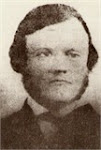***
This column by EJ Dionne speculates that holiday fun engages more Americans than mourning our war dead because military service has become, as a result of the professional army, limited to a small slice of the population.
***
According to the eminent historian David Blight, the first Memorial Day was observed immediately after the end of the Civil War by formerly enslaved black people at the Washington Race Course in Charleston, South Carolina. The race course had been used as a temporary Confederate prison camp in 1865 as well as a mass grave for Union soldiers who died there. Immediately after the cessation of hostilities, formerly enslaved people exhumed the bodies from the mass grave and re-interred them properly with individual graves. They built a fence around the graveyard with an entry arch and declared it a Union graveyard. The work was completed in only ten days. On May 1, 1865, the Charleston newspaper reported that a crowd of up to ten thousand, mainly black residents, including 2,800 children, proceeded to the location for a celebration which included sermons, singing John Brown's Body, and a picnic on the grounds, thereby creating the first Decoration Day.
I verified this entry from Wikipedia by searching the text of Race and Reunion: The Civil War in American Memory by David W. Blight.
Blight details the effect of politically selective memory surrounding the occasion here.
"But a measure of how white Charlestonians suppressed from memory this founding in favor of their own creation of the practice later came fifty-one years afterward, when the president of the Ladies Memorial Association of Charleston received an inquiry about the May 1, 1865 parade. A United Daughters of the Confederacy official from New Orleans wanted to know if it was true that blacks had engaged in such a burial rite. Mrs. S. C. Beckwith responded tersely: "I regret that I was unable to gather any official information in answer to this." In the struggle over memory and meaning in any society, some stories just get lost while others attain mainstream dominance."
Decoration Day was officially proclaimed on May 5, 1868 by General John Logan in his General Order No. 11, and was first observed officially on May 30, 1868.
This column by Adam Cohen uses Blight's book to suggest that, "War commemorations, he makes clear, do not just pay tribute to the war dead. They also reflect a nation’s understanding of particular wars, and they are edited for political reasons. Memorial Day is a day not only of remembering, but also of selective forgetting — a point to keep in mind as the Iraq war moves uneasily into the history books." (I note that this column was written in 2007, but the Iraq War still hasn't moved off stage and into the history books.).
***
Some Memorial Day web pages:Soldiers’ Memorial Day — From the American Memory’s Today in History website
















I find that 'Armistice Day' is more appropriate than memorial or decoration. We are still in a condition of armistice in Korea, a state of war without official military activity. A cease fire while preparing for strategic military advantage is characteristic of a warrior culture.
ReplyDeleteSince the greeks and Homer we have celebrated the 'death before dishonor' of Achilles, preferring to train our young to kill and maim for country.
That motto is still popular among tattoo parlor enthusiasts around military bases.
Praying for peace while strategizing for growth through war is warrior religion. God, Allah, Yaweh, should be recognized as the Ares and Mars of past myths of empire.
Having fun on Armistice Day is macabre.
November 11, Veteran's Day, was called Armistice Day to commemorate the end of the World War One. The name was changed when the same countries got up another war. The name of the first world war was changed as a result.
ReplyDeleteI don't see any reason not to have a day of remembrance called Memorial Day. The point, I think, is to both mourn the dead and to recall why our political leaders got the country into a war in which these men and women died, which necessarily calls up the question whether the war was worth the candle.
And, no, we do not dishonor those dead, by debating that question. If we decide that the US should not have fought the war they died in, then the proper conclusion is that these young people were betrayed by their political leaders, the powers-that-be, and the general public.